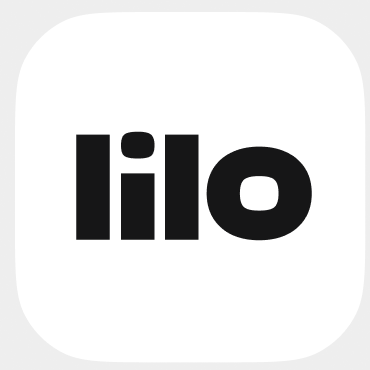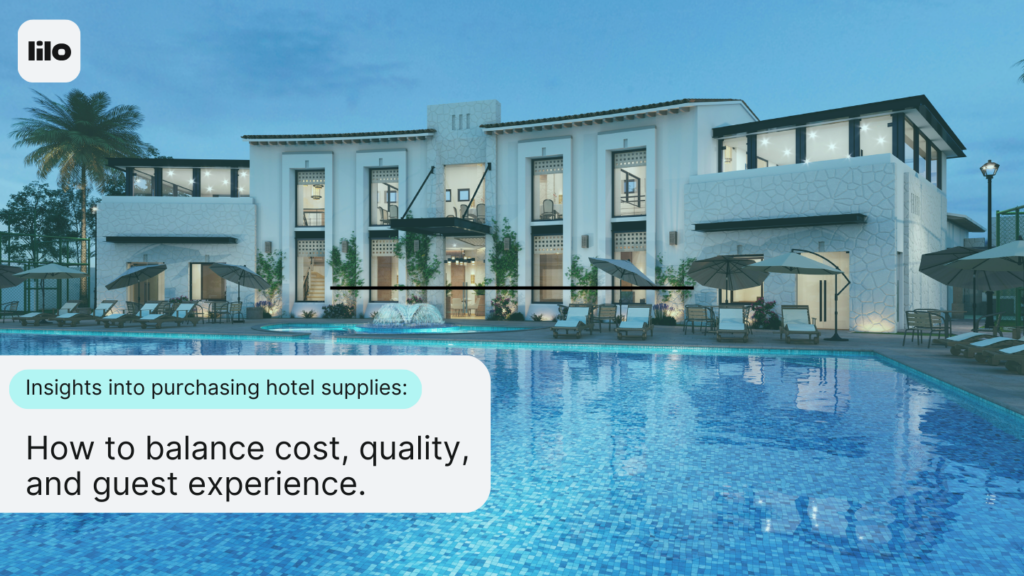Hotel supplies, including guest room essentials, amenities, equipment, and more, constitute a significant portion of a hotel’s recurring expenses.
This is one area where hotels can achieve considerable savings and optimize daily operations.
Hotels can maintain profitability—even when operating with tight margins—by adhering to best practices in sourcing supplies. Consequently, procurement has become a primary focus for general managers.
In this guide, we will discuss the best practices for purchasing hotel supplies.
Assess Your Hotel’s Unique Needs
Evaluate the specific needs of your property. Consider the type of hotel, target market, and brand positioning. A luxury resort, for instance, will require different supplies compared to a budget B&B.
Demand Projection is Crucial
Undersupply during a demand spike can leave you scrambling to maintain guest satisfaction. Overstocking can lead to wasted space, potential expiration, and an increased risk of theft and misuse. Both scenarios bleed profits.
Therefore, demand forecasting is essential. This task often falls under property GMs who juggle between multiple tasks and don’t have proper tools to make their projections. Most recently, cutting edge hospitality procurement platforms like Lilo, include forecasting features which make GMs lives easier and their properties more profitable.
With these tools, hoteliers can determine which supplies they need to purchase, in what quantities, and when restocking is crucial to ensure timely deliveries and optimal inventory levels.
Centralize Hotel Supply Purchases
When hotel supply purchases are decentralized, general managers lack the visibility necessary for making informed and strategic purchasing decisions.
Your hotel procurement process is likely to be inefficient when you lack transparency in areas, such as:
- Who is ordering supplies and why? This leaves room for potential over-ordering, unnecessary purchases, and a lack of accountability.
- Are the ordered supplies the most cost-effective option? Without comparisons and negotiations, you might be missing out on better deals.
- Do purchase orders align with your demand and budget? Uncontrolled purchasing leads to overspending and stockouts, impacting both your cash flow and guest experience.
In contrast, centralized purchasing through a platform like Lilo Hotel Supplies ensures that you are always looking at all the available options in the market, so you can make the best decisions, and help you overcome major hospitality procurement challenges .
With centralized procurement platforms you can track a single invoice, manage inventory levels, compare offers from multiple suppliers, and benefit from built-in features like GL coding, ensuring seamless financial tracking (and even funding) of your purchases.
Use Order Guides
Custom order guides can help streamline your hotel’s purchasing process.
When staff members need to buy something, custom order guides can direct them to the preferred vendors and the correct items.
This ensures purchases adhere to pre-defined terms & conditions, preventing “maverick spending” outside established agreements.
Hotel general managers using Lilo for sourcing hotel supplies, for example, utilize personalized order guides to facilitate efficient reordering and control unauthorized spending.
Navigate the Value-Cost-Flexibility Tradeoff
Cost control is paramount in hospitality purchases. But, it is equally important that you do not lose focus on value. So, avoid choosing products or vendors based solely on their pricing. This can backfire.
The cheapest products often require frequent replacement, increasing costs and harming the guest experience.
Vendors relying solely on bargaining for customer acquisition may prioritize sales over addressing quality concerns.
So, instead of purchasing the cheapest hotel supplies available, focus on identifying suppliers who provide high-quality products at competitive prices.
Group Purchasing Organizations (GPOs) can facilitate economies of scale, leading to lower prices, an extensive product range, and reduced administrative costs.
However, this hotel procurement strategy comes with drawbacks, including limited flexibility in negotiations, reduced control over purchasing operations, and subpar customer service.
Lilo delivers the best aspects one would expect from GPOs—wholesale prices, a broad product selection, and consolidated purchase orders—while also providing responsive service, flexibility in selection of supplies, and a steadfast commitment to quality.


